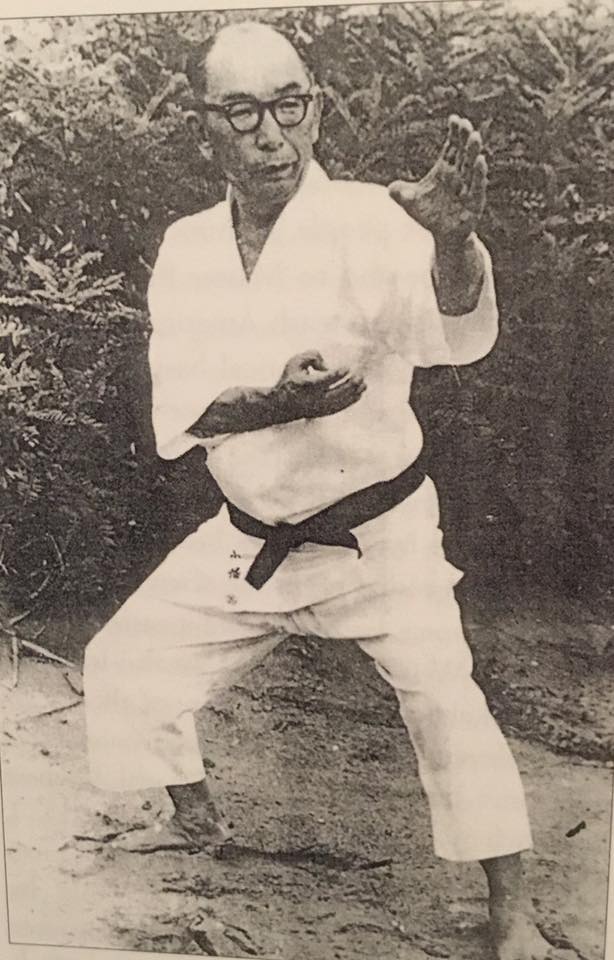Isao Obata: A Pioneer of Shotokan Karate

Isao Obata (1904 - 1976)
Isao Obata, a pioneering figure in Shotokan karate, left an indelible mark on the martial arts through his dedication, teaching, and leadership. As a senior student of Gichin Funakoshi, the founder of modern karate, and a key contributor to establishing the Japan Karate Association (JKA), Obata's legacy extends far beyond his years of practice. This article delves into the life and contributions of Isao Obata, shedding light on his remarkable journey.
Early Life and Martial Arts Beginnings
Isao Obata was born in 1904 in the Tokyo area of Japan to Kyuichi Obata and Toyoko Obata. His early life was marked by his father's ownership of several silk mills, which led to frequent relocations. Despite being destined to lead the family business, Obata's deep interest in martial arts, particularly karate, became evident from a young age.
During his school years, Obata was engaged in various martial disciplines, including judo, kendo (swordsmanship), and kyudo (archery). A fortuitous encounter with Gichin Funakoshi's book on karate ignited his passion for this martial art. His journey led him to Keio University, where he was among Funakoshi's first students when the master accepted a teaching position in 1923.
The devastating Great KantÅ earthquake of 1923 severely damaged the university's karate dojo, but with determination, it was rebuilt within a year, allowing training to resume. Obata's commitment to karate was evident, earning him a place among Funakoshi's senior students.
Karate Career and Teaching
Isao Obata's contributions to the karate world extended beyond his practice. Over the years, he assisted Funakoshi in teaching karate at various universities, including Takushoku University, Waseda University, and Hitotsubashi University (then known as Shoka University). His dedication to the art culminated in receiving the prestigious black belt status in 1926, a testament to his expertise and commitment.
In 1932, Obata's life took an unexpected turn when he relocated to Manchuria, where he served as an economic adviser to the Manchurian Aviation Corporation. While he continued to teach karate privately during this time, his focus shifted to kyudo. His personal life also blossomed with his marriage to Miyako in 1935.
In a surprising twist, Obata became known for his prowess in kyudo more than karate, even winning a kyudo tournament in 1940. World War II interrupted his karate journey as he had to return to Japan to care for his mother and sister after his brother, Satoru, died in the battle for Iwo Jima. The war further delayed Obata's training, with the occupying forces suspending all martial arts activities in Japan for three years.
With the war's end, Obata resumed his karate training under Funakoshi. His journey also led him to work at an international trading company, Hirano Seiko, where he applied his expertise.
Founding the Japan Karate Association (JKA)
In a historic moment on May 27, 1949, Isao Obata, alongside luminaries such as Masatoshi Nakayama and Shigeru Egami, played a pivotal role in founding the Japan Karate Association (JKA) under the guidance of Gichin Funakoshi. In this capacity, Obata served as the inaugural Chairman of the JKA, with Funakoshi as Honorary Chief Instructor and Nakayama as Chief Instructor.
Teaching in the United States
Isao Obata's influence extended beyond Japan's borders. His connection with the United States began through his demonstrations of Shotokan karate to United States Air Force personnel. This interaction with his students, particularly Tsutomu Ohshima, helped introduce karate to the United States.
Obata's enduring commitment to teaching karate spanned several decades. His students honoured him with a heartfelt plaque that described him as "strong, big, and gentle," a reflection of his impact both as a martial artist and a mentor.
Later Life and Legacy
In his final years, Isao Obata continued to teach karate, dedicating four nights and four evenings each week to Keio University and Meiji University. His contributions extended to nurturing the next generation of karate practitioners.
In a 1972 interview, Obata expressed concerns about the direction of karate's development, stating, "Karate is dying now. It cannot last longer than a few more decades." Despite these concerns, his legacy as a pioneering figure in Shotokan karate endures.
Isao Obata passed away in 1976, leaving behind a rich legacy of dedication, teaching, and leadership in the martial art of karate. His contributions to establishing the JKA and spreading karate worldwide continue to influence practitioners today.
Conclusion
Isao Obata's journey from a young enthusiast in Tokyo to a senior student of Gichin Funakoshi and a key figure in the formation of the Japan Karate Association exemplifies the transformative power of martial arts. His dedication to teaching and his role in introducing karate to the United States cement his legacy as a pioneer in Shotokan karate, ensuring that his impact on martial arts endures through generations.
Book a Free Trial Class at Bushido Karate Club
Bushido Karate Club is currently accepting new members. Contact us today to book a trial class in Douglas or Carrigtwohill and begin your karate journey. Places are limited so call today to avoid disappointment.
Tel: +353876307006






